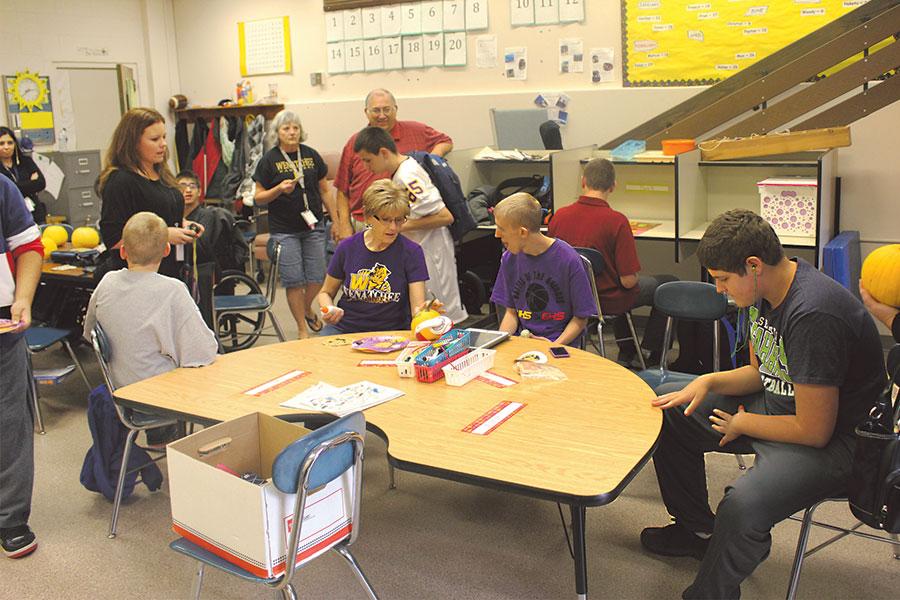Special Ed: More complex than it seems
Many people think the Special Education Department at Wenatchee High School is simply the class that helps with the recycling. But the department assists kids of all levels, and without it, many children would be left struggling.
There are four ways the department helps: by assisting kids in standard classes through a study hall, providing special courses (like writing and reading), for those who cannot keep up with the traditional curriculum, leading the self-contained class that focuses mostly on life skills (which also helps with recycling), and running a transitional home for young adults, where they are also given job opportunities.
Special Education teacher Danielle Ouellette administers a study hall specifically for kids who have trouble in their traditional classes — classes ranging from remedial to AP. She teaches the Individual Skills Care Class, along with some helpers, during which time she helps the kids help on their homework, projects, and also college searches.
Many staff members help with the next level of the department: special needs reading and writing classes. Steve Sears, Christopher Jeffris and others teach these classes. This program parallels the traditional curriculum, as each subject has different tiers and students move up the ladder. This makes for a challenging job for the teachers though, for the students’ abilities ranges on broad spectrum. Each period also has a paraeducator who helps each of the students individually and handles disciplinary problems.
“It’s a much more complex system than what you’ve probably seen; every kid is at a totally different level and reaching each and every one of them is a challenge, for sure,” said Jeffris.
Sears takes a different route to build relationships with these kids who have trouble connecting with those around them. “I try to be their friend before their teacher. I always ask them, I never tell them,” said Sears. “It’s amazing that I ask more questions than they do.”
So what exactly goes on in the Special Education Department classes? These are mostly self-contained classes where students spend most their time in an elementary school class schedule. They spend most their day in Kelly Wennerberg’s Life Skills class, where they learn applicable math, work talents, and social skills, but they also help out around the high school. Wennerberg has many paraeducators helping her make the learning experience more personalized. This class also has an extreme range of student abilities, so many of them actually go to the English classes as well.
Shelly Jelsing teaches their Adapted P.E. class, where students spend every day playing an assortment of modified games. Many seniors help T.A. the class and assist the students through all of the activities.
“Our job is to always have a smile on our faces and do whatever we can to put a smile on theirs,” said Christian Solovey, one of Jelsing’s assistants.
In years past, these students would have most likely stayed at WHS until they turned 21, but now there is a transitional house in Wenatchee that helps them once they turn 18. Most of them spend half of their day learning much like Wennerberg’s students do, but then they go to work at one of the several workplaces that provides jobs to those with special needs, like Red Robin.





